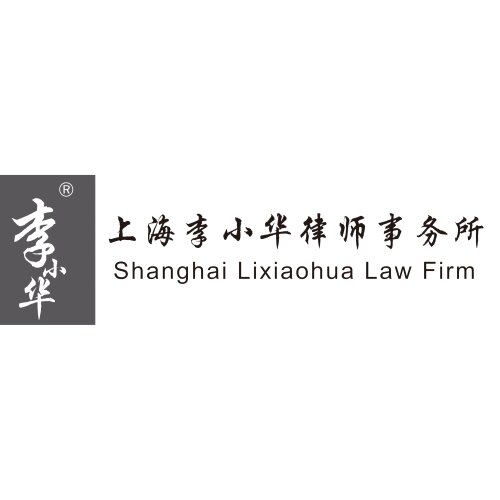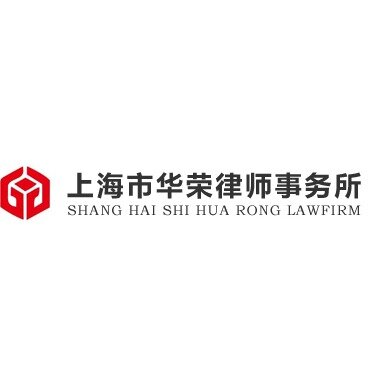Best Divorce & Separation Lawyers in Shanghai
Share your needs with us, get contacted by law firms.
Free. Takes 2 min.
Free Guide to Hiring a Family Lawyer
List of the best lawyers in Shanghai, China
About Divorce & Separation Law in Shanghai, China
In Shanghai, China, as in the rest of the country, the processes of divorce and separation are governed by the Marriage Law of the People's Republic of China and relevant local regulations. Divorce can be contentious or consensual, and the laws cover a wide range of matters, including but not limited to division of property, child custody, and alimony. The legal system in China tends to encourage reconciliation, and thus there is a mandatory mediation process in place before divorce can be granted by the court. In recent years, there has been a rise in the divorce rate in China, making the understanding of these laws increasingly important for those considering divorce or separation.
Why You May Need a Lawyer
Obtaining the services of a lawyer can be crucial in divorce and separation cases, particularly to ensure your rights and interests are protected. This includes situations where there is contention over child custody, disagreements about the division of assets including property, debts, and other financial concerns, as well as determining fair spousal support or alimony payments. If one of the parties is a foreign national or there are complications regarding jurisdiction, it becomes even more important to have legal representation. Furthermore, a lawyer can assist in navigating the mediation process and, if necessary, represent you effectively in court.
Local Laws Overview
Key aspects of Shanghai's divorce laws are consistent with national laws, with a focus on promoting reconciliation, and requiring parties to attempt mediation unless the grounds for divorce include domestic violence, bigamy, cohabitation with another person, or a long-term disappearance. Divorce can proceed as a unilateral or bilateral application. For property division, unless there's an agreement stating otherwise, property acquired during marriage is typically considered joint property and is subject to equitable distribution. Factors like fault in the breakdown of the marriage do not generally affect property distribution but might impact child custody determinations. Child custody is usually awarded based on the best interests of the child, often with a presumption favoring the mother, especially for younger children.
Frequently Asked Questions
Can I file for divorce in Shanghai if I or my spouse is a foreigner?
Yes, you can file for divorce in Shanghai if either spouse is a foreigner, provided that certain residency or domicile conditions are met. It’s advisable to seek legal counsel regarding jurisdiction and applicable laws.
Is mutual consent required for a divorce in Shanghai?
While mutual consent can make the divorce process simpler and faster, it is not required. One party can file for divorce unilaterally, but the court will usually require mediation first.
How is child custody determined in a divorce in Shanghai?
Child custody is determined based on the best interest of the child, with factors such as the child’s age, the parent’s living situation, and the ability to provide a stable environment being considered.
Will my property be divided equally in a divorce?
Not necessarily. The distribution of property is based on the principle of equitable distribution, which considers each spouse's contribution to the marital property and individual circumstances.
Can I receive or will I have to pay alimony?
Alimony or spousal support is not guaranteed in every divorce. It depends on various factors, including the financial situation of both spouses, the duration of the marriage, and the reason for the divorce.
How long does the divorce process take in Shanghai?
The duration of the divorce process can vary widely from a few months for an uncontested divorce to a year or more for a contested one. Mandatory mediation may affect the timeline.
What are the consequences of hiding assets during a divorce?
Hiding assets is illegal and can result in legal penalties, including a more unfavorable distribution of property or even criminal charges for fraud.
Do I need to go to court if we agree on all the terms?
If both parties agree on all divorce terms, including property division, child custody, and support arrangements, it may be possible to settle the divorce through mediation without going to court.
Are prenuptial or postnuptial agreements recognized in Shanghai?
Yes, prenuptial and postnuptial agreements are recognized, provided they are fair, legal, and registered with the appropriate authorities.
What if my spouse refuses to divorce?
If one party refuses to divorce, the other can still file for divorce unilaterally. The court then decides whether the marriage can be sustained based on provided evidence and circumstances.
Additional Resources
For those seeking more information on divorce and separation in Shanghai, resources can be found at the local civil affairs bureau, which oversees marital registrations and disputes. Moreover, the Shanghai Bar Association provides a directory of lawyers who specialize in family law. Local community centers or support groups might also offer resources for emotional support and practical guidance through the process.
Next Steps
If you are considering divorce or separation in Shanghai and need legal assistance, the first step is to consult with a qualified lawyer who specializes in family law. They will guide you through the necessary paperwork, explain your legal rights and options, and represent you during mediation or any required court proceedings. It's also advisable to gather all relevant financial documents, records of assets, and any evidence that may support your case.
Lawzana helps you find the best lawyers and law firms in Shanghai through a curated and pre-screened list of qualified legal professionals. Our platform offers rankings and detailed profiles of attorneys and law firms, allowing you to compare based on practice areas, including Divorce & Separation, experience, and client feedback.
Each profile includes a description of the firm's areas of practice, client reviews, team members and partners, year of establishment, spoken languages, office locations, contact information, social media presence, and any published articles or resources. Most firms on our platform speak English and are experienced in both local and international legal matters.
Get a quote from top-rated law firms in Shanghai, China — quickly, securely, and without unnecessary hassle.
Disclaimer:
The information provided on this page is for general informational purposes only and does not constitute legal advice. While we strive to ensure the accuracy and relevance of the content, legal information may change over time, and interpretations of the law can vary. You should always consult with a qualified legal professional for advice specific to your situation.
We disclaim all liability for actions taken or not taken based on the content of this page. If you believe any information is incorrect or outdated, please contact us, and we will review and update it where appropriate.













